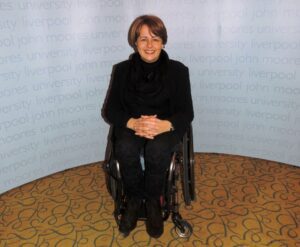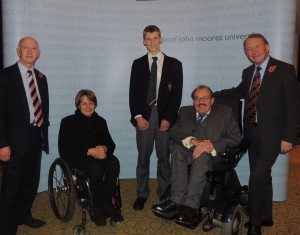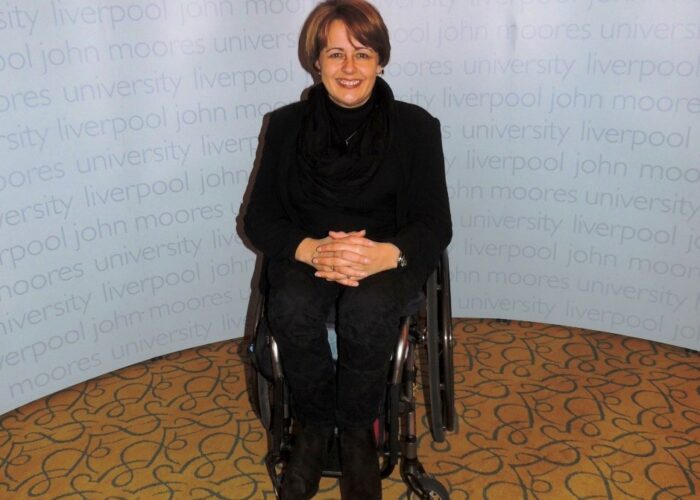
One of Britain’s greatest Paralympic athletes, Baroness Tanni Grey-Thompson, has expressed her amazement at the rapid change in Liverpool over the last two decades.
Speaking exclusively to JMU Journalism, after she gave the 115th Roscoe Lecture on Overcoming Disability and Adversity at the Philharmonic Hall this week, the Paralympian spoke about how quickly the city has developed.
But she also reinforced her concern for the future of financial support for disabled people across the UK.
She said: “I first came here probably 25 years ago. It has changed so much, the docks area, the conference centre, that part of the city is amazing.
“I grew up in Cardiff which has a lot of similarities in terms of shipping, export and trade. Developments here have been going on for a long time so it is nice to see the city reinvent itself.”
Baroness Grey-Thompson, who sits in the House of Lords as a non-party political crossbench peer, is striving to bring better support for disabled people in the UK.
At the Philharmonic, she admitted that the cuts will bring tougher restrictions and worries how people will cope with less support, saying: “At the moment crime figures against disabled people are the worst they’ve ever been. It’s not an easy time for disabled people.
“For example, the DVLA benefit, a number of people was given it for a life time but the government have said well actually nobody should have an award for a life time.
“Lots of people’s conditions aren’t going to get better; they are only going to get worse. Society is inaccessible and actually taking support away can be quite isolating for a number of disabled people.”
Later, in response to a question, Baroness Grey-Thompson said: “I think things are being sliced up. When we had disabled people on the streets protesting, people listened.

“It’s really difficult because I’m not too sure it’s fair to ask Paralympians to have a view because we don’t ask Olympians to have a view on Syria or any of these things.
“I think the way it’s being done, our tolerance levels are being eroded in terms of the way disabled people are being treated. I would love to see disabled people back on the streets protesting.”
Born with ‘spina-bifida’, Grey-Thompson is grateful that her parents fought for her rights when she was little.
There are no plans for her to come back out of retirement but her main focus is to bring new legislation in to help the disabled community.
She told JMU Journalism: “I would like to make it a criminal offence for people to park in a disabled parking space without a badge. I would like to do more to make sure disabled people are properly integrated into society, which at the moment, we are not there.”
She crowned a career with two gold medals in the 100 and 400 metres in the 2004 Athens Paralympics. It took her a medal haul over 16 years and five Paralympic Games to 11 gold, four Silver and a Bronze and established her as one of the most gifted and courageous sportswomen of her generation.
She also won the London Wheelchair Marathon six times between 1992 and 2002.

